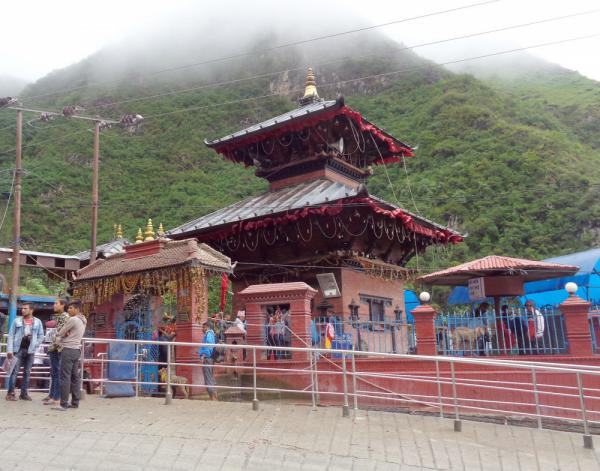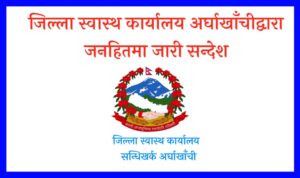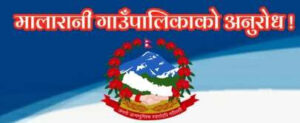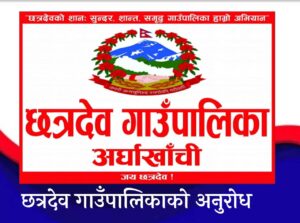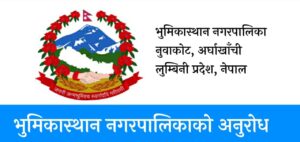25 Jul, 2021
By Modnath Dhakal Rising Nepal
Kathmandu, July 25: A 25-room tourist-level Hotel Sampada in Bhairahawa, the gateway to Lumbini, was in business for a year-and-a-half when the deadly coronavirus pandemic hit the country and lockdown was imposed to control the virus. The hotel went out of business immediately while uncertainty prevailed.
Managing Director of the hotel Sital Dhakal sent the workers to their homes amidst the unpredictability. The hotel that resumed services after six months with a handful of workers was again out of business during the second wave of the pandemic. Dhakal’s troubles were unfathomable, he had millions in debt and he has been paying 13 per cent interest in repayment. “Many businessmen like me have poor knowledge about the government-announced business support facilities. What we want is better environment to run our business,” he said.
Dhakal’s case is representative of the entire tourism and hospitality sector which is the fourth largest employer in Nepal. Entrepreneurs are fearing that the technically sound human resource might be displaced from the business and confidence of investors would hit the rock bottom.
Entrepreneurs especially fear the shortage of technical human resources in mountaineering and adventure sports sectors. “Nepal has the best branding in adventure tourism, if we lose people involved in this sector, it would take some years for us to achieve the pre-pandemic status,” said Ramesh Dhamala, former President of Trekking Agencies’ Association of Nepal (TAAN).
“It takes many years to prepare skilled manpower in adventure tourism like mountaineering, rafting, bungee jumping, rock climbing and other sports. It is distressing that skilled human resources are leaving their profession in order to get employment in other sectors,” he said.
Tourism directly employs about 400,000 people while more than a million are indirectly benefitted. However, President of Hotel Association of Nepal (HAN) Binayak Shah claimed that about 1.1 million or so people are directly or indirectly associated with the tourism business. The Economic Survey 2018 by the Central Bureau of Statistics put the number of employees in the tourism sector at 371,140 but it did not count the independent workers in mountaineering, taxi drivers and guides. According to the industry estimates, about 200,000 tourism workers – employed formally or informally – have lost their jobs.
“Only 10 per cent of the workers in the hotel sector are back to the work now but there is no indication to run the business in full capacity and get all the employees back to their job,” said Shah.
Poor execution of budget programmes
Tourism entrepreneurs are critical of the poor implementation of the government-announced programmes and lacklustre in offering support in business revival.
The sector had witnessed a loss of about Rs. 71 billion in the Fiscal Year 2019/20 resulting in the negative sectorial Gross Domestic Product (GDP) by 16 per cent. Hundreds of hotels, trekking agencies and other tourism businesses are shut owing to the prolonged uncertainty to restart the business.
Shah expressed wrath over the inefficiency of the government agencies to implement the programmes in time.
“The budget of the current FY 2021/22 has announced ‘free visa’ for foreign tourists for a month and 10-day paid tourism leave for government employees but neither the immigration offices have any circular regarding the ‘free visa’ offer nor the Tourism Ministry has formulated the procedures for the paid tourism leave,” he said. “Policy supports are more important than short term monetary rewards. What is the benefit of paying taxes to the government if we don’t get any benefits during hard times?” he asked.
Similarly, Dhakal is perplexed with the policy at immigration office at the Nepal-India border in Bhairahawa where people can cross the border on foot but can’t bring vehicles in or take out of the country.
“Tourists don’t come on foot. But this policy of not allowing cross-border vehicular movement has serious repercussions on the tourism business in Bhairahawa and Lumbini,” he said.
As many countries in the West have included Nepal in their travel advisories, Indian tourists could be the major catalyst to run businesses for the time being.
Confidence should be boosted
Dhamala said that the confidence of tourism and hospitality entrepreneurs has been massively impacted due to the lockdowns, restrictions and uncertainty of the situation.
Tourism businesses said that they have to manage government taxes, employees’ salary, house rent and bank interest while income has been almost nil for the last one-and-a-half years.
“Business confidence is the key factor in business survival and revival. If the government works to maintain confidence through policy reforms, rest will be managed by the private sector,” said Shah.
In order to maintain the confidence, the sector needs concessional and business continuation loans to the large enterprises, financial support and continuation loans to the small and medium enterprises (SMEs) and monetary support to the employees and workers.
About Rs. 1,500 billion is invested in tourism sector. “The government must consider the past one-and-a-half years as a zero hour and waive off all renewal fees, taxes and penalties. It should be applicable in the future as well as long as the uncertainty of the pandemic prevails,” said Dhamala.
Most of the businesses have demanded universal vaccination to the entrepreneurs and workers to support business operation and boost confidence in the businesses.
Circular and procedures soon
The government has announced business revival and rehabilitation schemes that included refinancing, concessional loans, business continuation loans and discounts in interest. The budget of the current fiscal also announced that the facility would be continued this year as well, and they would be extended for the tourism sector in the years to come, if necessary.
Spokesperson of the Ministry of Culture, Tourism and Civil Aviation, Tara Nath Adhikari said that the Monetary Policy of FY 2021/22 would design the programmes announced in the budget of this year.
According to him, the circular to the immigration office about the ‘free visa’ could be due to the flight restrictions to and from major tourism source markers. He also said that the procedures for paid tourism leave is being prepared and will be completed by mid-August.
“The government relief is nominal in terms of business support. What we need is opening up,” he said.
